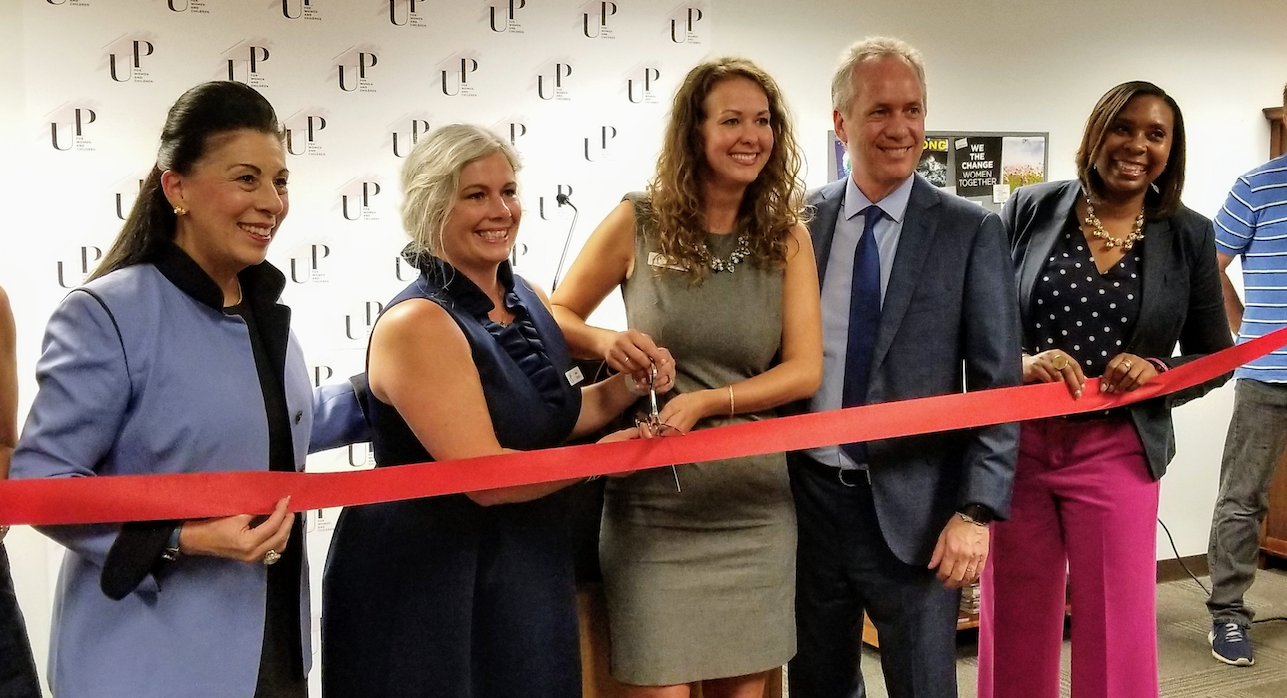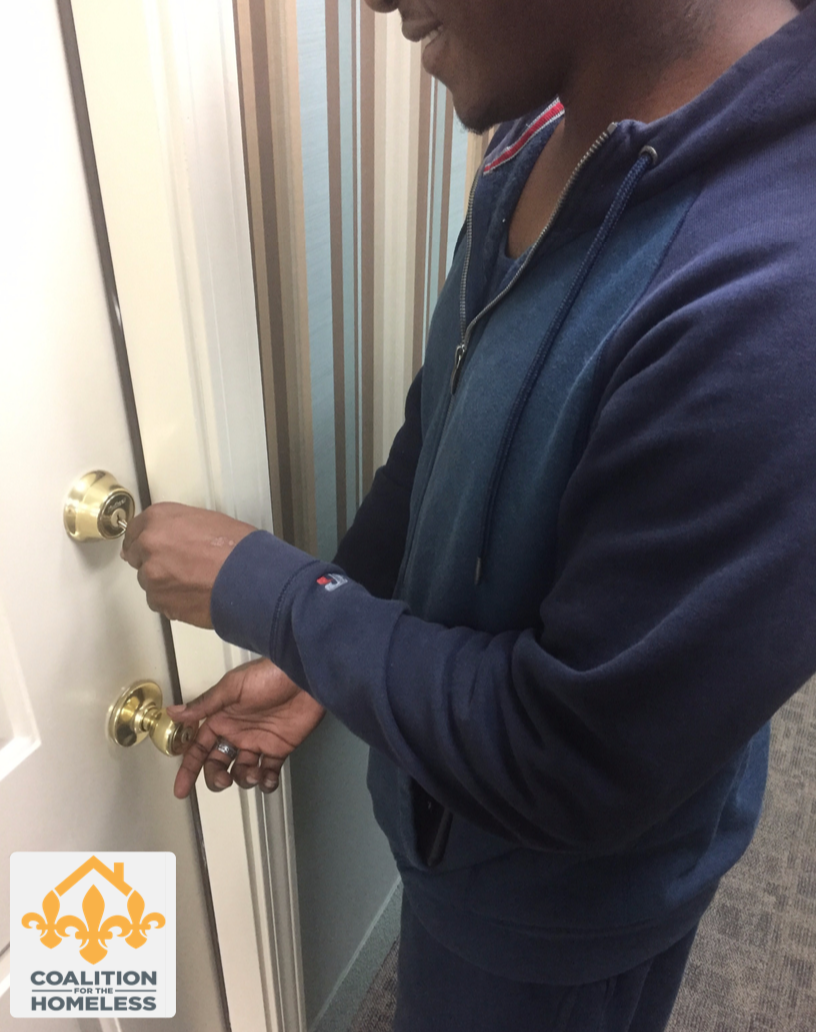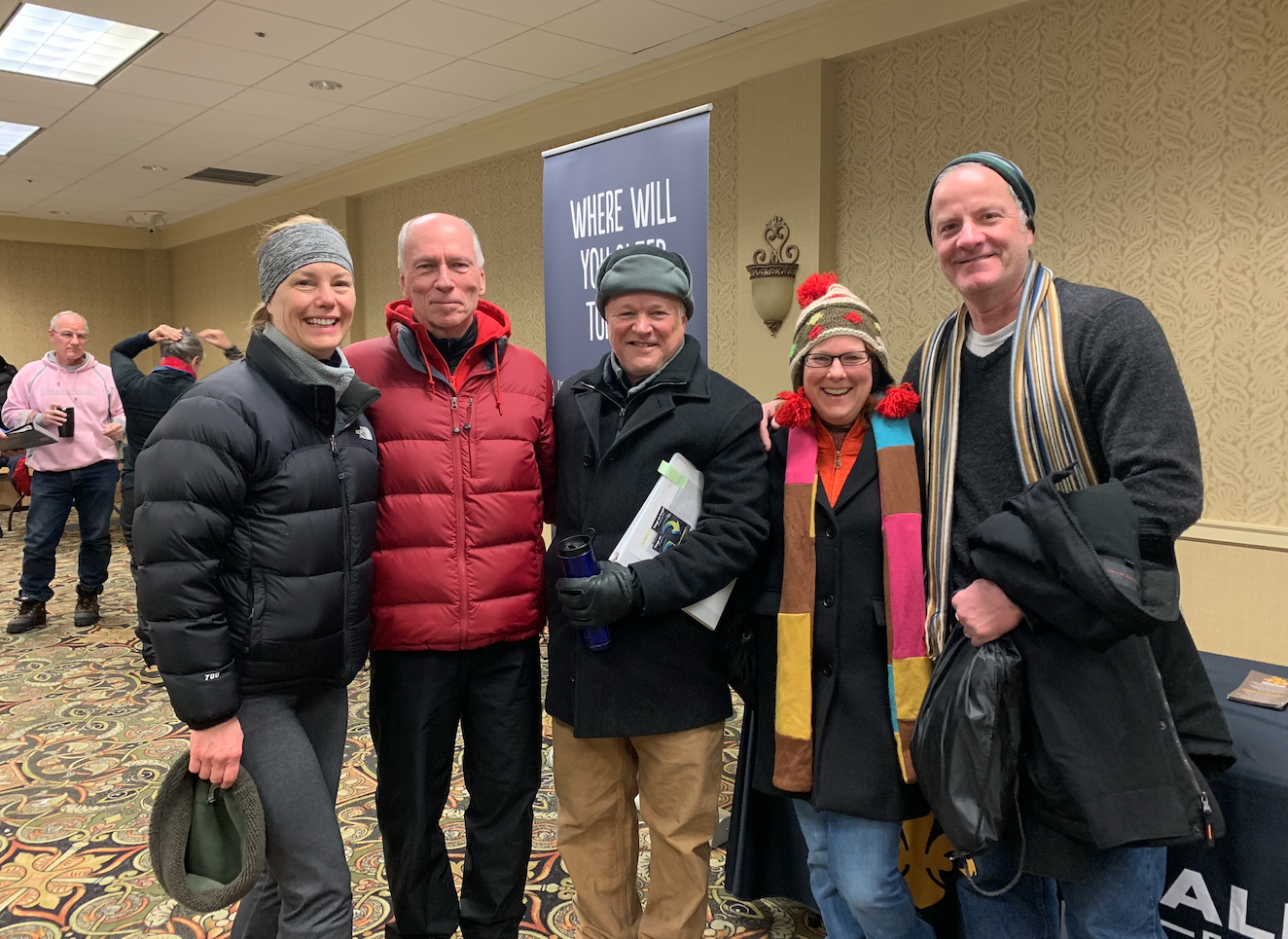Local Organization Works to Combat Homelessness Throughout Louisville
Photography Provided
The Coalition for the Homeless has been helping those in need in the Louisville area for 35 years. According to Executive Director Natalie Harris, the organization started when leaders from a group of churches in downtown Louisville asked the county judge to assemble a task force – that task force created what is now St. John Center for Homeless Men, and the Coalition for the Homeless.
“We were one entity at that point but soon realized we couldn’t do the direct service, and the larger advocacy and coordination work, so we split early on,” explains Harris. “We focus on the big-picture system change work.”
More than 30 local agencies provide direct services for homeless individuals, including both day and night family shelters and legal services. The Coalition for the Homeless, a 501(c)(3) nonprofit organization, also coordinates a homeless healthcare program and local family health centers.

The Coalition for the Homeless leaders work to educate the public on homelessness prevention, and advocate for governmental policy changes to offer homeless people increased opportunities.
“Homelessness is not the problem,” Harris says. “Homelessness is the result of a lot of problems in the community where systems fall down.”
These problems may include insufficient housing, a drug crisis, or a breakdown in the educational system. If adult members of a family struggle to maintain gainful employment, unexpected expenses can lead to an increasingly desperate family situation.
“Perhaps their kid ends up in the hospital, or their car breaks down and suddenly they can’t pay their bills and are evicted,” Harris says. “The next landlord doesn’t want to take a chance on them and the spiral begins.”
Though homeless individuals who fall into this category tend to remain homeless for a relatively short period of time, their transition back to permanent housing and employment can still be a difficult process.
“Louisville is lucky in that we don’t have the crazy housing costs that places like, say, San Francisco does,” Harris says. “Still, we have poverty in our city, and all those failed systems are what creates homelessness. That’s why we try to educate the community to get people involved in making change.”
 The organization’s leaders strive to bring as many resources to Louisville as possible. Each year, communities may apply for monetary assistance from the federal government to address homelessness. According to Harris, Louisville city officials are typically competitive in the application process, receiving roughly $10 million annually.
The organization’s leaders strive to bring as many resources to Louisville as possible. Each year, communities may apply for monetary assistance from the federal government to address homelessness. According to Harris, Louisville city officials are typically competitive in the application process, receiving roughly $10 million annually.
For the past eight years the Coalition has placed a strong focus on a single sub-demographic of the homeless population – veterans.
“We housed 818 veterans in two years,” Harris says. “We’ve been trying to do the same thing with young-adult homeless.”
Last December, Wayside Christian Mission opened a low-barrier shelter that typically houses 100 people nightly. During extremely cold weather when temperatures dropped into the single digits, that number increased to as much as 161.
“That shelter saved lives, but we need more temporary shelters for families,” Harris says. “It’s awful to have to tell a family that there is no place to stay tonight but we’ll put them on a waiting list.”
Sadly, the waiting list usually contains 30 to 50 families each night.
“I think, at a minimum, our city should have some safe place for everybody to come in for a short stay until we can get them into something more permanent,” Harris says. “We’ve lowered the number of homeless people in the city, but we’re fighting against the issues that are causing it. At the same time numbers are doing down, visibility is going up.”
This inverse relationship is due to factors like the opioid crisis, and affects downtown development.
“Homeless camps used to be very hidden and out of the way, but those locations don’t exist anymore because they are being turned into soccer fields or overpasses,” Harris says. “That has changed the dynamic and made homeless people more visible. Now you see a lot more people downtown beneath underpasses.”
Certain local resources are at risk of dissolving. Metro United Way has seen reduced donations, and the city is struggling to meet budget and pension requirements. Harris worries that the nonprofits she counts on may not have sufficient local support, and gives credit to the mayor, who has been an advocate for affordable housing funding and allocated $5 million toward an affordable housing trust fund.
Harris says the largest segment of the homeless population, both in Louisville and across the country, are those turning 60 this year and in coming years.
“With the biggest chunk of the homeless population becoming senior citizens, we need more nursing homes and assisted living facilities,” Harris says.
Adequate medical resources are also crucial for the younger population.
“Those with chronic health issues get worse on the street, and we don’t have a place in the city that can aid in chronic health issues,” Harris says.“Until a disease becomes acute enough that they have to be admitted to the hospital, they are on the streets.”
If you have a heart to help the homeless, Harris suggests connecting with existing agencies rather than starting a new organization.
“There are so many impressive groups out there doing great work,” she says.
Those interested in interacting directly with homeless individuals can reach out to Forgotten Louisville, where volunteers hit the streets to deliver essentials to homeless folks. Additional local homeless outreach organizations include Hip Hop Cares, Southeast Angels, Burrito Riders, and Fed with Faith.
“I’ve never heard of any other city that has the number of volunteer groups who go out to help the homeless,” Harris says. “Louisville is such a compassionate city.”
The Coalition for the Homeless office is located at 1300 South 4th Street, Suite 250 in Louisville. For more information, call 502-636-9550 or visit louhomeless.org.






Comments 1